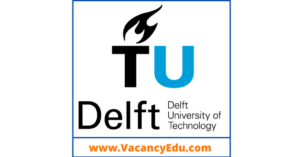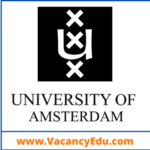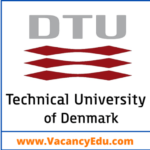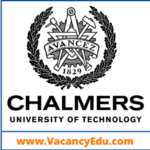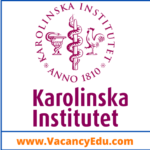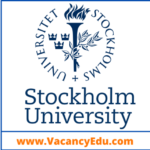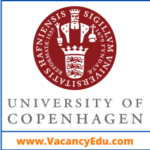Delft University of Technology (TU Delft), Netherlands invites online Application for number of Fully Funded PhD Degree at various Departments. We are providing a list of Fully Funded PhD Programs available at Delft University of Technology (TU Delft), Netherlands.
Eligible candidate may Apply as soon as possible.
(01) PhD Degree – Fully Funded
PhD position summary/title: PhD position in Spin Properties in Doped III-V Semiconductors
Quantum technologies are a family of technologies that leverage quantum effects to provide new functionalities, which hold a promise to help solve societal challenges. Their on-going development raises practical design issues as well as fundamental physics questions: how to manipulate and measure a quantum state quickly and reliably? How to efficiently transfer that quantum information to other systems? Your PhD work will contribute to answering such questions, by studying Spin Properties in Doped III-V Semiconductors. This system indeed offers a variety of quantum spins which can be addressed directly by a Scanning Tunneling Microscopy (STM). Moreover, III-V semiconductors are commonly used materials that are compatible with large-scale semiconductor production, which gives this project additional technological relevance.
Your PhD will be based at the TU Delft, a renowned hub for quantum nanoscience research and development. By performing Electro Spin Resonance (ESR) measurements inside an STM, you will help to start a new research project aimed at probing the spin properties of doped III-V semiconductors at the atomic scale. In recent years, ESR-STM has indeed proven its ability to measure and manipulate the spin of single atoms on insulating surfaces. Moreover, STM offers the possibility to design the spin system with atomic precision using atomic manipulation. Using these techniques on a different platform such as doped III-V semiconductors therefore opens the door to different spin systems, on which new effects can be investigated, such as spin-orbit interaction, or interaction with light.
Deadline : 17th of May 2024
(02) PhD Degree – Fully Funded
PhD position summary/title: PhD Position Advanced Stochastic Seismic Inversion and Testing to Capture Variability of Damping Ratio in Soil for Accurate Site-response Analysis
The PhD position will be in the Section of Applied Geophysics and Petrophysics and is part of a multi-disciplinary research project funded by the Dutch Research Council (NWO) as part of the DeepNL research initiative Call 2b (DeepNL).
As a PhD candidate you will be working in the geophysics group and will develop advanced seismic data-inversion schemes to obtain spatially varying, reliable damping-ratio estimates in soil, taking also into account measurement errors. This research will build on ongoing work on full-waveform inversion and machine learning for laterally varying, high-resolution shear-wave velocity and geotechnical information. The final goal is to facilitate a more realistic earthquake site-response analysis through incorporation of 3D heterogeneities in soils. You will interact closely with the other PhD candidate to achieve this goal. See our other vacancy as well PhD Position Nonlinear-dynamics-based Methodology for Improved Interpretation of Geotechnical Experimental Data for accurate Site-response Studies.
You will be responsible for developing a novel stochastic inversion scheme for damping ratio estimation from surface-wave dispersion data together with input from full-waveform inversion, testing the methodology on integrated active- and virtual-source seismic data, performing field tests, and estimating uncertainties. You will benefit from the ongoing 3DSOIL project and the recently completed SOFTTOP project (collaborative projects within DeepNL)
Deadline : 30 April 2024
View All Fully Funded PhD Positions Click Here
(03) PhD Degree – Fully Funded
PhD position summary/title: PhD Position Nonlinear-dynamics-based Methodology for Improved Interpretation of Geotechnical Experimental Data for accurate Site-response Studies
The PhD position will be in the Section of Applied Geophysics and Petrophysics and is part of a multi-disciplinary research project funded by the Dutch Research Council (NWO) as part of the DeepNL research initiative Call 2b (DeepNL).
As a PhD candidate you will be affiliated to the Section of Applied Geophysics and Petrophysics; however, you will mainly work in the Section of Dynamics of Solids and Structures within the same faculty. You will estimate the (shear) modulus reduction and damping ratio increase (MRDI) curves from geotechnical resonant column experiments on soil samples, using models that account for nonlinear wave propagation phenomena. Such models enable predicting the typical skewness of the frequency response curve due to softening as well as superharmonic resonances. Furthermore, a new algorithm will be designed to assign realistic spatial variability to the MRDI curves. The final goal is to facilitate a more realistic earthquake site-response analysis through incorporation of 3D heterogeneities in soils. You will interact closely with another PhD candidate to achieve this goal. See our other vacancy as well PhD Position Advanced Stochastic Seismic Inversion and Testing to Capture Variability of Damping Ratio in Soil for Accurate Site-response Analysis.
Deadline : 30 April 2024
(04) PhD Degree – Fully Funded
PhD position summary/title: PhD Position Spread in Networks
Epidemic processes widely apply to biological and computer network viruses, to cascading failures in power grids, to the spread of news, rumour or emotions in a social network, to transactions in banking networks and to the processing of functions and movements in the human brain. An epidemic process spreads over an underlying network topology or contact graph, that is generally changing over time. Standard models used so far are mostly based on Markovian processes and mean-field approximations. As the recent panic caused by Credit Suisse and Silicon Valley Bank throughout the global banking system has shown, dramatic improvements in modelling spread in networks is crucial to better understand and respond to such crises. As a PhD student at TU Delft, you will conduct research and develop non-Markovian models from the viewpoint of Network Science and geared to predicting and preventing spread in networks.
Depending on your interests in an epidemic application domain, your research may be dedicated to data communications, energy networks, and even pandemics within the scope of the ERC ViSioN project. Once you have mastered the theory, you will build models, describing the natural phenomenon with mathematical precision. Beside deriving theory and collecting data of real-world epidemic spread to validate your model, you will also program your model. Your software will convince decision makers of realistic scenarios and help reduce response times. You will be building your network of relevant stakeholders, e.g. in industry, among academics or at university hospitals. As a PhD student, you will also be coaching and supervising Master students with their thesis projects.
Deadline : April 24, 2024
(05) PhD Degree – Fully Funded
PhD position summary/title: PhD Positions More Reliable Electron Imaging for Semiconductor Industry
There is a growing demand for smaller and more powerful computer chips. A major challenge to meet this demand is that when components are extremely small, it is hard to make them visible and inspect with light. By using electrons instead of light, the highest possible resolution can be achieved for visualising semiconductor components. Inspection with electrons offers a solution, but the technique still has major, fundamental shortcomings.
Deadline : Open until filled
Polite Follow-Up Email to Professor : When and How You should Write
Click here to know “How to write a Postdoc Job Application or Email”
(06) PhD Degree – Fully Funded
PhD position summary/title: 2 PhD Positions Nonlinear Dynamics of 2D Nanomechanical Systems
Micro and nanomechanical systems are being adopted in billions of products, that address a wide range of sensor and actuator applications in modern technology. The advent of two-dimensional materials, and the ability to fabricate atomically thin membranes like graphene, promises further device downscaling, enabling ultimate sensing capabilities that until recently were only dreamed of. However, owing to their small size, these membranes exhibit nonlinearities at nm amplitudes and obtain a wealth of nonlinear phenomena whose potential in sensing applications are to be explored. Unlike common practice, this project will consider nonlinear dynamics not as phenomena to be avoided, but rather as new tools that can be exploited for betterment of nanomechanical performance. The project will include 2 PhD positions. The first PhD topic revolves around using nonlinear phenomena resulting from mode coupling, nonlinear dissipation or phase transitions to improve the performance of resonant sensors in closed loop. And for the second PhD topic the goal would be to understand and elucidate the phenomena that arise from the interplay between fluctuations and nonlinear dynamics. This will be achieved by thinning down 2D materials and manipulating their geometry such that intrinsic fluctuations already drive them into the nonlinear regime. Both projects will thus involve fabrication, testing, and nonlinear dynamic characterization of 2D material resonators and oscillators.
The vacant positions are in the Dynamics of Micro and Nanosystems (DMN) group. The group focuses on exploiting dynamics of small-scale systems to create technologies that can lead to new products in the fields of scientific instrumentation, consumer electronics and healthcare. Our research spans from measuring and manipulating materials at the micro and nano scale, to the design of world-class MEMS and NEMS sensors and actuators.
Deadline : 15 April 2024
(07) PhD Degree – Fully Funded
PhD position summary/title: PhD Position Nanomechanical Sensing of Single-bacteria
Although noise has a negative connotation, such that in general it is eliminated or avoided, there are applications, specifically in biology where noisy dynamics can be useful. This is particularly true in the emerging field of nanomotion detection where microsystems have shown to reveal nanoscale oscillations of micro-organisms. Using graphene drums these tiny vibrations can now be resolved at the single-cell level. Recently, at TU Delft we demonstrated that graphene-based nanomotion technology can be used for fast detection of antibiotic resistance and can serve as a new nanotool for screening the effectiveness of antibiotics. We now plan to delve further into the nature of this nanomotion, optimize nanomotion sensors for robust detection of biological signals, and even engineer our devices for amplifying rhythms from single bacteria.
The vacant position is in the Dynamics of Micro and Nanosystems (DMN) group. The group focuses on exploiting dynamics of small-scale systems to create technologies that can lead to new products in the fields of scientific instrumentation, consumer electronics and healthcare. Our research spans from measuring and manipulating materials at the micro and nano scale, to the design of world-class MEMS and NEMS sensors and actuators.
You will be working in an international environment in one of the leading technical universities of Europe, with access to state-of-the art micro-nano testing facilities, bio-safety labs, and advanced numerical modelling tools. You will be contributing to a challenging topic related to a European Research Council (ERC) Consolidator grant together with a team of 3 PhD students and 2 postdocs, and with the opportunity to also closely collaborate with a start-up focusing on bringing nanomotion technology to clinical practice.
Deadline : 15 April 2024
(08) PhD Degree – Fully Funded
PhD position summary/title: PhD Position Satellite-derived Bathymetry using Physics-informed Machine Learning
Climate change has significantly impacted human life by increasing the frequency of natural disasters, disrupting ecosystems, and worsening coastal vulnerabilities. Bathymetry, crucial for coastal science, remains largely unknown globally despite its importance in various sectors. Coastal regions, housing 40% of the global population, face increasing vulnerability due to natural hazards and human activities. Accurate bathymetric data is also essential for navigation, dredging, and environmental management. Traditional methods like multi-beam echo-sounding are costly and time-consuming, also leaving about 50% of shallow water bodies unexplored.
By bridging this information gap, stakeholders can enhance coastal resilience and foster sustainable development. Satellite-derived bathymetry (SDB) offers an alternative, utilizing satellite images for depth retrieval. Recent advances in processing methodologies of SDB offer promising solutions. This project aims to enhance SDB accuracy through deep learning pan-sharpening and physics-informed machine learning techniques. These methods will be tested in two regions worldwide and applied to the Dutch coast, focusing on the Wadden Sea and North Sea. Your research seeks to improve SDB precision in challenging coastal environments using advanced AI. As part of your role, you will write papers, attend conferences and contribute to the reports that are the project deliverables.
As a member of our interdisciplinary Aircraft Noise and Climate Effects (ANCE) team, you will also contribute to labs and experiments and mentor master’s students in their research projects. Collaborating with assistant and associate professors, lecturers, project managers, other PhD candidates, and postdocs from diverse backgrounds, we employ a wide range of model-based and empirical methods to analyse data. In particular, utilizing PIML is also integral to our approach domains. You will receive comprehensive support and training to nurture your growth as a researcher.
Deadline : 31 March 2024
Click here to know “How to Write an Effective Cover Letter”
(09) PhD Degree – Fully Funded
PhD position summary/title: PhD Position Rigorous Algorithms for AI in Automation
When deploying AI, the real world is often different from simulations. To make AI more rigorous, we are looking for two PhD researchers to work on novel methods for verifying when AI adaptation is necessary, and for resolving violations in a human-interpretable way. You will conduct both theoretical and empirical research at the intersection of logic, optimization, and machine learning for control, monitoring, and interpretability. Both PhD projects are inspired by real-world deployment of AI, with one leaning towards advancing theory and the other to be done in close collaboration with domain experts from the Netherlands Railways (NS), leading to significant scientific as well as practical impact.
You will be part of the Algorithmics Group in the Department of Software Technology of the Faculty of Electrical Engineering, Mathematics and Computer Science. You will work in a dynamic and diverse environment of other PhD and postdoc researchers excited about making theoretical and algorithmic contributions in intelligent decision making.
You will be supervised by [Dr. Anna Lukina](https://annalukina.com/) and [Prof.Dr. Matthijs Spaan]( https://www.st.ewi.tudelft.nl/mtjspaan/) or [Prof.Dr. Mathijs de Weerdt](http://www.alg.ewi.tudelft.nl/weerdt/), depending on the project.
Deadline : March 29, 2024
(10) PhD Degree – Fully Funded
PhD position summary/title: PhD position Optimal Operational resiliency of Large-size Multi-energy systems
The project Optimal, secure, and modular development of multi-energy networks (MADURO) is seeking a highly motivated PhD candidate to develop new concepts for dynamic stability modelling, adaptive control, and optimization under uncertainty for the multi-objective development of large-size (e.g. several gigwatts) of multi-energy systems. The research will lead to computationally efficient and scalable stability simulation and optimization tools to maximize the operational resiliency and techno-economic flexibility of inegrated multi-energy systems. The research activities will be based on off-line digital steady-sate and dynamic simulations, and real-time digital simulation for laboratory scale experiments (e.g. control-in-the-loop testing), data analytics, multi-variable non-linear control, and advanced optimization methods.
This PhD position, starting from April 2024, offers a great opportunity to work in a multidisciplinary team and with industrial partners. You will translate your research into new system design principles and techno-economic specificaions. In addition, you will be organising cocreation workshops and meetings and will report your progress and findings to the stakeholders. You will, of course, publish papers and disseminate your findings and knowledge in relevant communities.
Deadline : March 15, 2024
Connect with Us for Latest Job updates
(11) PhD Degree – Fully Funded
PhD position summary/title: PhD Position Scalable Fabrication of Diamond Nanophotonics for Quantum Computers
We have an open PhD position at TU Delft in the exciting new area of scalable nanophotonic fabrication of diamonds with color centers for quantum computers.
Efficient realization of large-scale nanophotonic structures in diamond coupled with color centers will enable control and readout of a large number of integrated qubits with many interconnects with a small pitch, improving the performance and realizing a compact, scalable spin quantum computing system.
Specifically, the candidate is expected to focus on the development of a thin diamond-on-insulator (DOI) substrate and reliable fabrication and testing methods for large-scale diamond nanophotonics with spin qubits on the developed DOI platform. This will allow 1) a standard photonic-grade, diamond substrate (DOI) platform for diamond photonic integrated circuits, 2) the realization of large-scale photonic circuits using standard fabrication process flow, 3) improve fabrication accuracy, reliability, and production yield towards industrial scale, 4) efficient light-matter interface, qubit manipulation and 5) reliable optical interconnection for a practical, on-chip quantum computing system with large-scale integrated spin qubits in diamond. Challenges in the efficient realization of such a system are uniformly thinning and polishing a photonic-grade DOI substrate, optimal design of the photonic systems, controlling fabrication imperfection and yields of spin qubit activation, positioning, low-temperature testing of large-scale diamond photonic circuits with spin qubits.
The DOI substrate, color center incorporation, and large-scale diamond nanophotonic structures will be designed in-house, fabricated/realized in appropriate cleanrooms/foundry, and optically characterized at cryogenic temperatures. Most of the substrate and device fabrications, and qubit activations will take place in TU Delft cleanrooms. TU Delft has two world-class cleanrooms, the candidate will work at both of them depending on necessary resources and processes. The diamond photonic circuits with embedded color center spin qubits will be first tested at low temperatures and then will be integrated into a 3D stack that contains necessary interconnections, qubit control elements, driver/control electronics using cryo-CMOS, and optical-electrical interfaces. The qubits are optically coupled and controlled on-chip and inside a cryostat and the fidelity of the basic quantum operation will be characterized.
Deadline : 15th March 2024
Polite Follow-Up Email to Professor : When and How You should Write
(12) PhD Degree – Fully Funded
PhD position summary/title: PhD Position Quantum Data Management
Join the frontier of technology with our PhD positions in Quantum Data Management. At the Web Information Systems Group of the Software Technology Department in collaboration with QuTech, we’re at the forefront of blending quantum computing with data management. This emerging field promises revolutionary advancements, offering solutions to classical database problems and opening doors to capabilities beyond current systems.
Deadline : March 15, 2024
(13) PhD Degree – Fully Funded
PhD position summary/title: PhD position Optimal Operational resiliency of Large-size Multi-energy systems
The project Optimal, secure, and modular development of multi-energy networks (MADURO) is seeking a highly motivated PhD candidate to develop new concepts for dynamic stability modelling, adaptive control, and optimization under uncertainty for the multi-objective development of large-size (e.g. several gigwatts) of multi-energy systems. The research will lead to computationally efficient and scalable stability simulation and optimization tools to maximize the operational resiliency and techno-economic flexibility of inegrated multi-energy systems. The research activities will be based on off-line digital steady-sate and dynamic simulations, and real-time digital simulation for laboratory scale experiments (e.g. control-in-the-loop testing), data analytics, multi-variable non-linear control, and advanced optimization methods.
This PhD position, starting from April 2024, offers a great opportunity to work in a multidisciplinary team and with industrial partners. You will translate your research into new system design principles and techno-economic specificaions. In addition, you will be organising cocreation workshops and meetings and will report your progress and findings to the stakeholders. You will, of course, publish papers and disseminate your findings and knowledge in relevant communities.
Deadline : March 15, 2024
(14) PhD Degree – Fully Funded
PhD position summary/title: PhD Position Computational Design of Mechanical Metamaterials for Controlling Fracture
Modern design paradigmns can no longer rely on intuition, but instead on advanced comptational tools. We are particularly interested in mechanical metamaterials, which exhibit unusual mechanical behavior not found in nature by means of an engineered structure. For instance, metamaterials can be designed so that at bulk they have an effective negative Poisson’s ratio (auxetic metamaterials), or they attenuate waves with subwavelength structures (acoustic metamaterials). However, the creation of metamaterials with unusual fracture behavior is yet to be explored. The design of a new class of mechanical metamaterials with tailored fracture behavior could have a large set of applications, ranging from dissipative wearables to customized food. In fact, together with the University of Amsterdam (UvA), we recently pushed forward the first generation of edible metamaterials with tailored fracture (see BBC article at https://www.bbc.co.uk/newsround/61200014). As a PhD candidate, you will be in charge of the design of the next generation of mechanical metamaterials by means of topology optimization.
Deadline : 15 March 2024
(15) PhD Degree – Fully Funded
PhD position summary/title: PhD Position Capturing the Value of Long-Duration Underground Hydrogen Storage in Energy System Models
Long-duration energy storage, for example under the form of underground hydrogen storage, requires costly infrastructure development. To decide how much storage capacity to develop, its location and timing, decision makers often rely on energy system models. These models allow exploring plausible future developments of the energy system, focusing on the transition to a net-zero energy system. While long-duration energy storage is a pivotal element in such a net-zero energy system, current state-of-the-art models are unable to properly value these assets.
Deadline : 17 March 2024
(16) PhD Degree – Fully Funded
PhD position summary/title: PhD Position on Fluid Dynamics of Microplastics Removal
New technologies are urgently needed to limit micro-plastics release in the aquatic environment. A large contribution to micro-plastics pollution comes from microfibers released from clothes in our washing machines, which cannot be completely filtered with current methods. In the MicroWash project, the team will combine novel experiments and simulations to investigate the fluid mechanical principles of microfiber transport and trapping in filters, and optimize new approaches of active and passive separation of the hardest-to-filter microfibers. MicroWash aims to deliver the next generation of low-cost, high-performance filters for washing machines, to cut microfiber emission at the source. Three PhD positions are available on this project: The three PhD candidates working on the project will collaborate closely with each other and the project offers exciting synergies with both industrial partners and non-profits.
PhD position in the group of Dr. Burak Eral (www.erallab.com) will be on microfluidics and separations in the Process & Energy Department of Mechanical Engineering department. In this project, you will develop experimental strategies to unravel how micropacticles of distinct physiochemical make up and geometry interact with flow, surrounding boundaries with the application of capturing microparticles.
Deadline : 18 March 2024
(17) PhD Degree – Fully Funded
PhD position summary/title: PhD Position Multiscale modelling of Cardiovascular Tissues
Understanding tissue mechanics is crucial to unravel the complexities of diseases, influencing their initiation, progression, and the effectiveness of treatments. Through multiscale computational models, we delve into the mechanical interactions occurring at both cellular and tissue levels. These models play a pivotal role in developing personalized treatment strategies and predicting the onset and progression of cardiovascular diseases. They offer a comprehensive perspective, facilitating the identification of key factors that influence disease dynamics and contributing to the advancement of precision medicine.
In this project, we employ a combination of microscopic imaging, mechanical testing, and multiscale computational modeling to gain insights into the biomechanical behavior of human tissues in both health and disease. Our models, operating at multiple scales – from individual cells to entire tissues and organs – capture the passive and active behaviors of tissues.
This approach enables a thorough exploration of the intricate mechanisms underlying disease processes for the development of more refined and targeted medical interventions.
Such models can help in understanding how mechanical stimuli can influence the progression of the disease. This models can also help in understanding the tissue reponse to mechanical loadings during surgical procedures and in interaction with medical devices. Validation of such models require pre-clinical imaging data that will be aquired in close collaboration with clinicians. These multiscale models are also crucial in the context of Virtual Human Twin (VHT), as promoted by the European commission through EDITH initiative (https://www.edith-csa.eu/).
Deadline : 20 March 2024
(18) PhD Degree – Fully Funded
PhD position summary/title: PhD position: atomic layer deposition for CO2 hydrogenation catalysts
Within the endeavour of the energy transition, it is essential to develop new technologies and to ensure further opportunities for the chemical industry in the field of CO2 capture and utilization: in this way, crucial feedstock chemicals can still be produced without contributing to the greenhouse effect. Conversion of CO2 into useful bulk chemicals can be performed using light (photochemically), power (electrochemically) of heat (thermochemically) combined with appropriate catalysts. In this project, we focus on thermocatalytic CO2 conversion as it is closest to maturation. The long-term stability of catalyst systems that are used in this conversion route is still a major challenge. In that respect it is important to fundamentally understand what causes instability of catalyst systems, which deactivation mechanisms play a role, and to identify leads to mitigate instability.
In this project, you will contribute to solving the stability challenges! In our group, one PhD position is available. As a future PhD student, you will deploy novel thin film technology – especially on atomic layer deposition (ALD) – to make novel catalytic structures that are tailored to have a greater stability than standard catalysts. ALD is a gas phase method with atomic precision that can both be applied to deposit catalytic materials as well as for forming protective layers on catalysts.
Deadline : March 20, 2024
(19) PhD Degree – Fully Funded
PhD position summary/title: PhD Position Carbon Chemistry on the Surfaces of the Galilean Ice Moons
In the group of Dr. Niels Ligterink, a laboratory-based PhD project is available on the investigation of carbon chemistry on the heavily irradiated surfaces of the Galilean moons and unravel the endogenic and/or exogenic origin of these molecules.
Using the ICEBEAR setup [Kipfer et al., 2023], the successful applicant will simulate the destruction and formation of carbon-bearing molecules on the surfaces of the ice moons Europa, Ganymede, and Calisto. The results of this project will help interpret ongoing observational efforts, such as the mapping of CO2 ice on Europa’s surface [Villanueva et al., 2023], guide the instruments of the Jupiter Icy Moons Explorer (JUICE) and Europa Clipper space exploration missions, and pave the way for future landed missions in search of biosignatures [Europa Lander, Voyage 2050].
Deadline : 21 March 2024
How to increase Brain Power – Secrets of Brain Unlocked
(20) PhD Degree – Fully Funded
PhD position summary/title: PhD position on process analytical technology for synthetic co-cultures
This project is focused on synthetic defined co-culture bioprocesses because these possess advantages for complex biological conversions over mono- and undefined mixed-cultures, such as the “division of labor” principle and the ability to produce non-native products, leading to higher productivity. This is relevant for sustainable biotechnological bioprocesses as these can become increasingly more difficult to perform with mono- or undefined mixed-cultures when tackling, for example, the conversion of CO2 to complex added-value products.
This project will employ in-line process analytical technology (PAT) for real-time identification, characterization, and monitoring of defined co-culture bioprocesses. PAT consists of analytical techniques that monitor parameters in-situ during cultivation without sampling, to retrieve both chemical and biological data with a single measurement point. Thus, PAT facilitates (near) real-time information, creating a better understanding of processes, as well as the opportunity to use cultivation data for process optimization to maximize productivity.
This project is part of a department-wide consortium and in close collaboration with the section Industrial Microbiology.
Deadline : 22 March 2024
(21) PhD Degree – Fully Funded
PhD position summary/title: PhD Position on Dense Inertial Suspension Flow
Dense suspension flows play a key role in many engineering applications. Examples include the manufacturing of batteries and other devices enabling the energy transition, but also the handling of waste slurries and the recycling of critical materials. Furthermore, suspension flows are encountered in natural processes, such as blood flow and sediment transport. While we can predict the properties of these suspensions with reasonable accuracy for viscous flows in simple systems, this is not the case when inertia starts to play a role. A prime example is the migration of particles towards the core, observed in pipe flows with volume fractions of 10-20% and higher. The exact mechanisms are poorly understood, yet we can readily see the global effect: a suspension exhibiting this ‘core peaking’ has a considerably lower friction factor compared to a uniformly distributed suspension.
In this project, the flow of suspensions of particles will be investigated experimentally. As the flows are opaque, conventional measurement techniques (such as PIV) will be supplemented with more advanced tools, including Magnetic Resonance Imaging and Ultrasound imaging.
The role of particle size and volume fraction will be investigated, by documenting the migration speed and steady-state concentration profiles. The results will be used to formulate a predictive model, e.g. based on a Suspension Balance Model. The goal is to link microscale phenomena to macroscale behavior and to explore the limitations of formulations based on a single, complex fluid.
Deadline :22 March 2024
(22) PhD Degree – Fully Funded
PhD position summary/title: PhD position Power System Dynamic Modelling, Stability and Defense against Cascading Failures caused by Cyber Attacks
TwinEU project, funded under Horizon Europe, is recruiting talented, enthusiastic, and ambitious PhD candidates to perform excellent research and achieve breakthroughs in the field of digital twins for power systems. The strategic goal of TwinEU is to leverage a unique set of competences from grid and market operators, technology providers and research centres to create a concept of Pan-European digital twin based on the federation of local digital twins and enable a reliable, resilient, and safe operation of the infrastructure while facilitating new business models that will accelerate the deployment of renewable energy sources in Europe. The vision of TwinEU is to enable new technologies to foster an advanced concept of digital twining while determining the conditions for interoperability, data and model exchanges through standard interfaces and open APIs to external actors. The envisioned digital twin will build the capability to observe, test and activate a pan-European digital replica of the European energy infrastructure. Demonstrators will encompass key players at every level from transmission to distribution and market operators, while also testing the coordinated cross-area data exchange.
Within the TwinEU project, TU Delft is hiring a doctoral candidate on the subject: “Power system dynamic modelling, stability and defense against cascading failures caused by cyber attacks”. In this PhD, you will contribute to the development of a digital twin of the European power grid and subsequently develop methods to increase the stability and resilience of the power grid. The proposed methods will enable power grid self-healing capabilities for preventing / stopping cascading failures.
Deadline : March 24, 2024.
(23) PhD Degree – Fully Funded
PhD position summary/title: PhD Position Next-gen Adsorbents
Organic micropollutants (OMPs), including pharmaceuticals, personal care products, and industrial chemicals, like PFAS, are regularly found in surface water at concentrations above drinking water regulations. While technologies are available to remove OMPs from surface water, these technologies are energy, chemical, and cost intensive. The drinking water sector indicates an urgent need for novel, green solutions for OMP removal. Next-generation adsorbents such as high-silica zeolites, MXenes or β-cyclodextrin promise to be better adsorbents than traditional activated carbon to remove OMPs from water. In contrast to current water treatment technologies these adsorbents are associated with higher efficiency and selectivity for many emerging pollutants.
This PhD is embedded in the recently funded NWO project WaterSmart (Drinking Water Solutions for organic Micropollutants using sustainAble and Robust Treatments). Together with our colleagues from Wageningen University and Research (WUR) and our partners from the Chinese Research Center for Eco-Environmental Sciences and the Institute of Urban Environment in the Chinese Academy of Sciences our Sino-Dutch collaboration will investigate next-generation adsorbents reactors in combination with existing green drinking water treatment technologies such as riverbank filtration or as a replacement for existing adsorbent reactors.
You will be part of a group of 4 PhD students across our three institutions. While the WUR PhD student is going to be busy enhancing adsorption/biodegradation during soil passage in riverbank systems, you as TUD PhD student will focus on unravelling the adsorption mechanisms of highly mobile and persistent OMPs in next-generation adsorbent reactors, and the regeneration methods for these new adsorbents. On the Chinese side the two PhDs will look into transformation products of OMPs and develop models to predict OMP removal performance across treatment plants.
Deadline : 24 March 2024
(24) PhD Degree – Fully Funded
PhD position summary/title: PhD position Interacting Particle Models for Social Organisms
Interacting particle models, also called agent-based models, individual-based models, active particle models, or cellular automata, are generally used to simulate the spatial dynamics of large groups of interacting entities. Originally developed for physical and chemical systems, they are also increasingly applied to simulate biological systems, such as bacteria, insects, fish, and people. These models can be classified as either lattice-based, where the agents move on a grid and generally interact with those agents at the neighbouring grid points, or off-lattice, with agents moving in two- or three-dimensional space and interacting with nearby neighbours and/or the environment via convolution kernels. In our lab, we work develop and work with both lattice-based and off-lattice models, generally for socially interacting organisms.
One of the strengths of individual-based modelling is that the models are straight-forward to understand for non-mathematicians, making them an attractive option in the context of interdisciplinary projects. Experts in the system being modelled can give valuable insight into how agents should move and interact, and this can be incorporated directly into the update rules of the model. This allows the team to see the effects that different local interactions have on a macroscopic scale, often giving important insight into collective dynamics and the real-world system as a whole. This is very important in our lab, where we regularly work with other researchers in fields as diverse as fishery science, engineering, and social psychology.
Deadline : March 24, 2024
(25) PhD Degree – Fully Funded
PhD position summary/title: PhD position in Grounding Large Language Models in the Real World
Human memories do not just capture a stream of data. What is important to memorise is determined by the way we conceptualize the world around us, by common cultural-cognitive perceptions, and by personal preferences. Our memories are efficient but also have limitations and can fail. Machines, on the other hand, can memorise every detail almost without limitation but lack the human capacity to focus on relevance. To collaborate, humans and machines need to align their different memories. In this project we build models, partially inspired on the human capacity for Theory of Mind, that enable such alignment by figuring out what is shared and what is different. Successful alignment of memories should lead to better collaboration of humans and machines, including robots, on shared tasks.
We seek a highly motivated and talented PhD researcher to work on an exciting project focused on hybrid memory modelling. The research will take into account both visual observations by the robot and conversations between robots and people. In this project, the successful candidate will build a conversational robot that aligns their memories through natural language conversation to 1) detect conflicts, gaps, perspectives and uncertainties and 2) repair these. The candidate will be part of the Hybrid Intelligence Center and the Interactive Intelligence Group at TU Delft. You also work in close collaboration with researchers at the Vrije Universiteit Amsterdam.
The ideal candidate will have a background in computer science, artificial intelligence, or a related field, and a strong interest in human-computer interaction. Experience in machine learning, natural language processing, and deep learning is also a plus.
Deadline : March 24, 2024.
(26) PhD Degree – Fully Funded
PhD position summary/title: PhD Position in Advanced Computational Design of Next-generation high-tech systems
In the high-tech and semiconductor equipment industry, each next generation of systems must meet more stringent demands in terms of speed, accuracy, efficiency and reliability. Moreover, the operation of such equipment involves multiple disciplines: structural dynamic and thermal performance as well as control aspects must be considered, which makes the design process very challenging. For this reason, this project aims at developing advanced computational design approaches for high-tech applications. This involves building on techniques for advanced component design such as topology optimization, and extending these by accounting for multi-disciplinary aspects such as controller-structure interaction, thermomechanical coupling and other dynamic effects. Moreover, this project aims to also include system-level architectural design choices into the computational design process. Think of the placement and sizing of actuators, sensors or cooling channels. This opens the door to the design of advanced systems that exploit oversensing and overactuation to reach unprecedented performance levels. This project forms part of the ‘NextGen HighTech’ programme and involves multiple prominent high-tech companies. Next to design method development, realization of a hardware demonstrator also forms part of the project.
Deadline : 24 March 2024
(27) PhD Degree – Fully Funded
PhD position summary/title: PhD Position Rigorous Algorithms for AI in Automation
When deploying AI, the real world is often different from simulations. To make AI more rigorous, we are looking for two PhD researchers to work on novel methods for verifying when AI adaptation is necessary, and for resolving violations in a human-interpretable way. You will conduct both theoretical and empirical research at the intersection of logic, optimization, and machine learning for control, monitoring, and interpretability. Both PhD projects are inspired by real-world deployment of AI, with one leaning towards advancing theory and the other to be done in close collaboration with domain experts from the Netherlands Railways (NS), leading to significant scientific as well as practical impact.
You will be part of the Algorithmics Group in the Department of Software Technology of the Faculty of Electrical Engineering, Mathematics and Computer Science. You will work in a dynamic and diverse environment of other PhD and postdoc researchers excited about making theoretical and algorithmic contributions in intelligent decision making.
You will be supervised by [Dr. Anna Lukina](https://annalukina.com/) and [Prof.Dr. Matthijs Spaan]( https://www.st.ewi.tudelft.nl/mtjspaan/) or [Prof.Dr. Mathijs de Weerdt](http://www.alg.ewi.tudelft.nl/weerdt/), depending on the project.
Deadline : March 29, 2024
(28) PhD Degree – Fully Funded
PhD position summary/title: PhD Position High-Resolution Modelling and Simulations of Low-carbon Geoenergy Applications
Geological reservoirs used for producing or storing energy are heterogeneous. Characterising and quantifying geological heterogeneities is challenging because sampling scales (e.g., plugs, cores) are different from the scales where petrophysical properties need to be defined (i.e., the grid block in a reservoir model). This gives rise to major uncertainties, especially in heterogeneous formations such as the Rotliegend of the Netherlands, because reservoir models are used to investigate how geological heterogeneities impact production rates and production risks. A fundamental challenge is that current reservoir modelling workflows almost always underestimate geological heterogeneity and hence provide unrealistic uncertainty bounds. The unique database of the Groningen Rotliegend reservoir in the Netherlands provides a once-in-a-generation opportunity to develop an efficient and scientifically-based methodology that allows us to represent the key geological heterogeneities in reservoir models through geologically-informed upscaling and better constrain uncertainties in model predictions. Such advanced geoscience research will enable us to execute future geoenergy projects safely and sustainably, and is needed to earn trust among different stakeholders and societal actors. The CrossScale project, which is part of the DeepNL programme funded by the Dutch Research Council, hence aims to bridge across scales and disciplines to develop a new upscaling methodology for better reservoir models and provide a new deliberation approach that improves the communication between scientists and societal stakeholders.
Deadline : 29 March 2024
(29) PhD Degree – Fully Funded
PhD position summary/title: PhD Position Adaptive Optimization and Learning Methods for Transportation Systems
One of the biggest challenges for transportation systems is how to wisely utilize the available resources while responding to the demand. According to Eurostat, 20% of road freight kilometres in the EU in 2020 were driven by empty vehicles and this is similar for other modes of transportation. There are various reasons for the underutilization of transportation capacity. Firstly, there are uncertainties in the system, e.g., demand is fluctuating, the travel and service times vary significantly. In order to cope with that, operators frequently end up allocating more resources than needed. Secondly, transport systems have complex supply-demand interactions which makes it difficult to optimize the decisions on different resources. Underutilization of capacity entails costs that do not generate revenue and contribute to CO2-emissions, whereas the transportation sector is striving for sustainability goals. Being able to adapt the decisions – e.g., the network design, allocation of capacity, routing and scheduling – according to evolving demand and conditions in the transport network is a promising direction to improve the utilization of available resources.
ADAPT-OR project is funded by European Research Commission for Fundamental Research. The aim of ADAPT-OR is to develop self-learning capabilities towards adaptive transportation systems by leveraging the intersection of operations research, behavioural modelling and machine learning methodologies. The idea is to make use of information from the system itself across different decision-making levels, from the users and from the external environment in a self-learning manner in order to continuously adapt the decisions at different levels. For example, depending on the trends in behavior for a given delivery service, the network design can be adapted.
Deadline : 29 March 2024
(30) PhD Degree – Fully Funded
PhD position summary/title: PhD Position Satellite-derived Bathymetry using Physics-informed Machine Learning
Climate change has significantly impacted human life by increasing the frequency of natural disasters, disrupting ecosystems, and worsening coastal vulnerabilities. Bathymetry, crucial for coastal science, remains largely unknown globally despite its importance in various sectors. Coastal regions, housing 40% of the global population, face increasing vulnerability due to natural hazards and human activities. Accurate bathymetric data is also essential for navigation, dredging, and environmental management. Traditional methods like multi-beam echo-sounding are costly and time-consuming, also leaving about 50% of shallow water bodies unexplored.
By bridging this information gap, stakeholders can enhance coastal resilience and foster sustainable development. Satellite-derived bathymetry (SDB) offers an alternative, utilizing satellite images for depth retrieval. Recent advances in processing methodologies of SDB offer promising solutions. This project aims to enhance SDB accuracy through deep learning pan-sharpening and physics-informed machine learning techniques. These methods will be tested in two regions worldwide and applied to the Dutch coast, focusing on the Wadden Sea and North Sea. Your research seeks to improve SDB precision in challenging coastal environments using advanced AI. As part of your role, you will write papers, attend conferences and contribute to the reports that are the project deliverables.
As a member of our interdisciplinary Aircraft Noise and Climate Effects (ANCE) team, you will also contribute to labs and experiments and mentor master’s students in their research projects. Collaborating with assistant and associate professors, lecturers, project managers, other PhD candidates, and postdocs from diverse backgrounds, we employ a wide range of model-based and empirical methods to analyse data. In particular, utilizing PIML is also integral to our approach domains. You will receive comprehensive support and training to nurture your growth as a researcher.
Deadline : 31 March 2024
(31) PhD Degree – Fully Funded
PhD position summary/title: PhD Position Mechanobiology of Myocardial Tissue
Heart failure is a progressive chronic condition where cardiac tissue undergoes detrimental changes in structure and function across multiple scales in time and space. To improve our understanding of this highly disabling disease, we urgently require an improved mechanistic understanding of the relationship between myocardial tissue’s microstructural organization and its macroscale mechanical behavior.
In this project, you will combine advanced optical imaging and biomechanical tissue testing techniques with state-of-the-art human disease modeling platforms to characterize and track the microstructural-to-macromechanical kinetics of growth and remodeling. You will work together with an interdisciplinary team of researchers at the interface of mechanobiology, imaging physics, computer vision, and cardiothoracic modeling. Your research will be part of a greater and exciting effort aimed at the development of predictive cardiovascular digital twins that enable individualized medical treatment therapy optimization for complex, multifactorial cardiovascular disorders (part of the Horizon Europe VITAL consortium).
The research will be conducted in the Department of BioMechanical Engineering at Delft University of Technology (TU Delft) under the supervision of dr. ir. Mathias Peirlinck, in collaboration with the Translational Cardiothoracic Surgery Research Lab at Erasmus Medical Center in Rotterdam. The Peirlinck Lab integrates multimodal experimental data, physics-based modeling, and machine learning techniques to understand, explore, and predict the multiscale behavior of the human heart and cardiovascular system. More information on the team and research can be found on https://peirlincklab.com.
Deadline : 31 March 2024
(32) PhD Degree – Fully Funded
PhD position summary/title: PhD Position Computational Optics
This PhD position is computational in scope and aims at exploring wave propagation in different media. In combination with a mathematical understanding, numerical simulations as a rigorous tool have become crucial for obtaining intuition, guidance and design of state-of-the art experiments. The media we consider include tailored or designed media or interfaces that aim at engineering specific beam profiles in a given plane, information retrieval from scattered or random media and possibly coupling to matter. In collaboration with local experiments, you will develop numerical techniques and through that advance the general understanding and identification of the underlying principles and mechanisms.
Deadline : March 31, 2024
(33) PhD Degree – Fully Funded
PhD position summary/title: PhD Position Understanding the Non-Stationary Nature of Human-Induced Earthquakes and its Impact on Geothermal Energy Production
The research programme DeepNL aims to improve the fundamental understanding of the dynamics of the deep subsurface under the influence of human interventions and the resulting effects at the Earth’s surface. DeepNL focuses on induced earthquakes and subsidence caused by gas extraction in the Groningen area. This PhD position is part of the DeepNL project NEPTUNUS (“Novel methods for the Evaluation and Physical understanding of the Transient natUre of iNdUced Seismicity”).
Earthquakes resulting from human interventions in the subsurface (such as the production or storage of natural gas or hydrogen, or geothermal energy production) have fundamentally different characteristics compared to natural earthquakes. Understanding the essential non-stationary character of the processes that caused human-induced earthquakes in the Groningen natural gas field in the Netherlands is expected to be a key ingredient to avoiding such problems in future applications of geothermal energy production in this country.
Deadline :1 April 2024
(34) PhD Degree – Fully Funded
PhD position summary/title: PhD Position Understanding the Non-Stationary Nature of Human-Induced Earthquakes and its Impact on Geothermal Energy Production
The research programme DeepNL aims to improve the fundamental understanding of the dynamics of the deep subsurface under the influence of human interventions and the resulting effects at the Earth’s surface. DeepNL focuses on induced earthquakes and subsidence caused by gas extraction in the Groningen area. This PhD position is part of the DeepNL project NEPTUNUS (“Novel methods for the Evaluation and Physical understanding of the Transient natUre of iNdUced Seismicity”).
Earthquakes resulting from human interventions in the subsurface (such as the production or storage of natural gas or hydrogen, or geothermal energy production) have fundamentally different characteristics compared to natural earthquakes. Understanding the essential non-stationary character of the processes that caused human-induced earthquakes in the Groningen natural gas field in the Netherlands is expected to be a key ingredient to avoiding such problems in future applications of geothermal energy production in this country.
Deadline : 1 April 2024
(35) PhD Degree – Fully Funded
PhD position summary/title: PhD Position on Multi-Dimensional Characterization and Modelling of Mining Residual Piles
Large volumes of mining residuals are produced by mining activities, both in the past and present. Additionally, there’s a growing demand for mined materials due to population growth, economic expansion, and the shift towards renewable energy. This results in mining companies extracting and processing large quantities of materials, potentially leading to substantial amounts of waste. While this waste could potentially harm the environment, it may also contain valuable metals. Thus, it’s crucial to understand the variations in the volumetric composition of mine waste piles for proactive waste management and secondary resource recovery. The main goal of this position is to develop and implement innovative methodologies to analyze and model the spatial variability and distribution of mining residual piles in multiple dimensions. The research work entails collecting samples from test case sites, utilizing secondary data, and conducting data analysis. Ultimately, this role offers an exciting opportunity to make significant contributions to the field of environmental sustainability and efficient resource management through the utilization of sensor technologies and advanced data analytics.
Deadline :31 March 2024
(36) PhD Degree – Fully Funded
PhD position summary/title: PhD Position Observability and Identifiability for Data Assimilation of Induced Seismicity in Groningen
The research programme DeepNL aims to improve the fundamental understanding of the dynamics of the deep subsurface under the influence of human interventions and the resulting effects at the Earth’s surface. DeepNL focuses on induced earthquakes and subsidence caused by gas extraction in the Groningen area.
The DeepNL project NEPTUNUS (“Novel methods for the Evaluation and Physical understanding of the Transient natUre of iNdUced Seismicity”) includes three concurrent PhD projects. The PhD project advertised here concerns Observability and identifiability for data assimilation of induced seismicity in Groningen. The other two PhD projects are: “Multi-scale modelling and assessing Induced Seismicity due to Geothermal Energy Production” and “Understanding the nonstationary nature of human-induced earthquakes and its impact on geothermal energy production”.
Induced seismicity, or earthquake activity caused by humans, can be studied with mathematical models. By combining these models with observations, we can better estimate and understand the underlying processes of these earthquakes. This PhD project aims at unraveling to what extent data assimilation methods such as ensemble Kalman filtering can be applied to improve our understanding of induced seismicity. As a case study, we will use available observations of ground motion at the Groningen gas field.
Deadline : April 1st, 2024.
(37) PhD Degree – Fully Funded
PhD position summary/title: PhD position in Large Language Models for Knowledge Harvesting, Sharing, and Management
Knowledge is a vital asset for individuals, organizations, institutions, and society. Large Language Models (LLMs) have the potential to revolutionize how knowledge is generated, shared and managed by automating the extraction of relevant information from vast amounts of unstructured data, synthesizing it into coherent narratives, and injecting it in multimodal user interactions. Recent advances, such as Retrieval Augmented Generation (RAG), enable LLMs to parse through extensive documents, identify key points, and summarize content, rendering the information more accessible and comprehensible for users. Through dialectic techniques, LLMs can facilitate (tacit) knowledge extraction from expert users and instrument knowledge sharing with novice ones. LLMs can also be fine-tuned to categorize, tag, and retrieve information, responding to queries with relevant documents or even specific text passages. Using an intermediate layer, LLMs can translate natural language querries into a compatible format for popular databases (e.g., MySQL, Neo4j) thus expanding existing knowledge bases. By enabling more efficient search and discovery processes, LLMs help maintain an organized and dynamic knowledge base, supporting continuous learning and decision-making within organizations and beyond. This PhD research will also investigate the technical and algorithmic challenges involved in information retrieval techniques beyond RAG. This research will seek to answer the following Research Questions (RQs):
Deadline : 27 March 2024
About Delft University of Technology (TU Delft), Netherlands –Official Website
Delft University of Technology, also known as TU Delft, is the oldest and largest Dutch public technical university. Located in Delft, Netherlands, it is consistently ranked as one of the best universities in the Netherlands, and as of 2020 it is ranked by QS World University Rankings among the top 15 engineering and technology universities in the world.
With eight faculties and numerous research institutes, it has more than 26,000 students (undergraduate and postgraduate) and 6,000 employees (teaching, research, support and management staff).
The university was established on 8 January 1842 by William II of the Netherlands as a Royal Academy, with the primary purpose of training civil servants for work in the Dutch East Indies. The school expanded its research and education curriculum over time, becoming a polytechnic school in 1864 and an institute of technology (making it a full-fledged university) in 1905. It changed its name to Delft University of Technology in 1986.
Dutch Nobel laureates Jacobus Henricus van ‘t Hoff, Heike Kamerlingh Onnes, and Simon van der Meer have been associated with TU Delft. TU Delft is a member of several university federations, including the IDEA League, CESAER, UNITECH International and 4TU.
Disclaimer: We try to ensure that the information we post on VacancyEdu.com is accurate. However, despite our best efforts, some of the content may contain errors. You can trust us, but please conduct your own checks too.
Related Posts
- 40 PhD Degree-Fully Funded at University of Southampton, England
- 38 PhD Degree-Fully Funded at University of Amsterdam, Netherlands
- 15 PhD Degree-Fully Funded at Technical University of Denmark (DTU), Denmark
- 28 PhD Degree-Fully Funded at Chalmers University of Technology, Gothenburg, Sweden
- 15 PhD Degree-Fully Funded at Karolinska Institute, Sweden
- 11 PhD Degree-Fully Funded at Brunel University, London, England
- 04 PhD Degree-Fully Funded at Stockholm University, Sweden
- 23 PhD Degree-Fully Funded at Swansea University, Wales, United Kingdom
- 32 PhD Degree-Fully Funded at University of Copenhagen, Denmark

